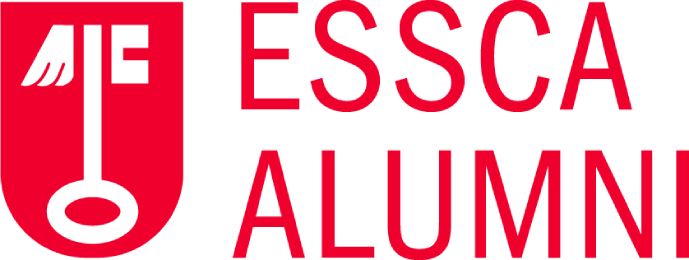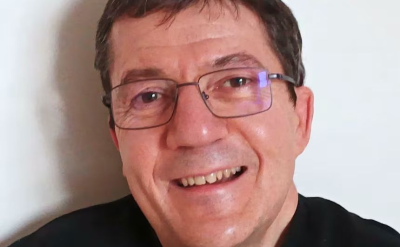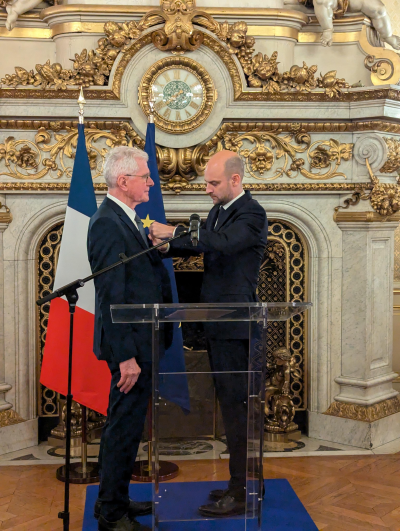News

An entrepreneur in the wine industry: Portrait of Pierre-Edouard Chatin (class of 2007)
Why did you choose ESSCA?
In my final year of high school, I was very undecided about my professional future and the choice of studies to follow. There were passion projects (history, architecture), more rational projects (economics, maths) and projects that integrated these 2 dimensions while at the same time introducing me to the world of business, of which I knew virtually nothing. Essca was that project!
What do you learn from it?
Friendships, first of all; because I believe that those student years, far from our families, are for many of us the backbone of our adult lives.
Teaching, of course! I immediately fell in love with economics and finance. Learning how to read a balance sheet, calculating the value of an investment, understanding the relationship between inflation and interest rates - all this puts me in the shoes of every entrepreneur who has to make choices, build projects and manage a company. I thought it was great to get a feel for such issues at the age of 19/20.
Last but not least, the beauty and cultural and historical richness of the Loire region, to which I had never been before and to which I remain very attached to this day.
What have been the milestones in your career?
I started off with the classic: an end-of-studies internship with BNP Paribas in London and a VIE with BNPP in Indonesia. Commodities (oil, cereals, coffee, sugar, metals, etc.) appealed to me straight away. It's very concrete and the stakes are immense. What's more, the social and ecological challenge adds a fundamental dimension to these subjects.
On my return from Jakarta, I worked for 6 years in commodity finance (at BNPP and then BGFI) in Paris, with regular trips to ports, mines, plantations and flour mills to see and understand how the huge chain that transforms and brings a raw product to our plate or our tank of gas works.
In 2015, I joined the Roullier Group, a French agricultural group specializing in plant nutrition, to look after the financing of its subsidiaries and customers. It was pretty close to what I'd been doing until then; but for once, I was the one borrowing and not the one lending... After this first position, Roullier asked me to look after the Group's South American subsidiaries. It was a big challenge to move from a position specializing in a small area (financing) to a generalist role managing the whole life of a company. So, with my wife Amélie and our 2 children, we left for Uruguay for 4 years, where our third child, Joséphine, was born. I have nothing but fond memories of these 4 years, and a strong taste for South American culture, which is so endearing and close to our own Latin culture.
How did your interest in entrepreneurship come about?
I think it was born at the same time as me, because I've always wanted to set up a company, register a patent, create a concept. In short, to get started!
How did the Château de Respide takeover come about? Tell us about this wonderful adventure...
The genesis of our Respide repise is first and foremost a family project. Amélie is an agricultural engineer and oenologist. She began her career in Champagne (at Ruinart), then in a Uruguayan bodega. Amélie passed on to me this passion for wine, which doesn't run in the family, but which has "infused" well on my side, as my 2 sisters now also work in the wine industry!
Amélie dreamed of working in Bordeaux, probably the most magical terroir winegrowing has ever known. And I wanted to take over a company. We simply merged our projects

What are the challenges/opportunities?
A vineyard is always an activity that shapes the life of a family. The majority of property transfers are therefore from parents to children. Fortunately for us, there are a few exceptions...
Our criteria were simple: first and foremost, an attractive terroir, because wine is above all a reflection of what nature gives us: soil, climate, grape varieties and the quality of vineyard management are the most important parameters when you want to take over an estate.
Then you have to have a long-term vision. Wine is 10, 20, 30 years of work to move your business in one direction. In fintech, you can make an even bigger strategic shift in just 3 months. This long-term approach takes us back to our age-old history with wine, but also to our social and environmental responsibility for the future. How exciting!
In 2020, we visited Château de Respide and met Christine and Franck Bonnet, our predecessors, with whom we fell in love: passionate, responsible and talented winemakers. In 2021, the deal was done and we returned to France to settle in Bordeaux and take over Château de Respide.
We liked the wines of Château de Respide and they already enjoyed a good reputation, albeit in the South-West. Our mission is twofold:
- Constantly innovating in the vineyard and the cellar to produce great wines, reduce our carbon footprint and better understand the link between terroir and wine.
- Promoting Respide wines in France and around the world

What are your wider links with the Essca ecosystem?
My Essca ecosystem is above all my student friends, whom I've never lost sight of despite the years. We call each other often and organize at least one weekend get-together a year, even though there are more and more of us with children. It's such a joy to see them again!
I've also come across several alumni in my professional life and have always joined the alumni network.
Finally, thanks to Jean-Louis Bertrand, I gave a few courses (in finance) at Essca Angers and Bordeaux. Being able to pass on a little of what you've received is a great joy and a real responsibility!
What's your message to Alumni?
Drink Respide! 😊
If you're interested in the project, we've developed a community of "Respide Ambassadors", a network of friends and family who know our wines, talk about them and receive a few nice bottles in return!









No comment
Log in to post comment. Log in.